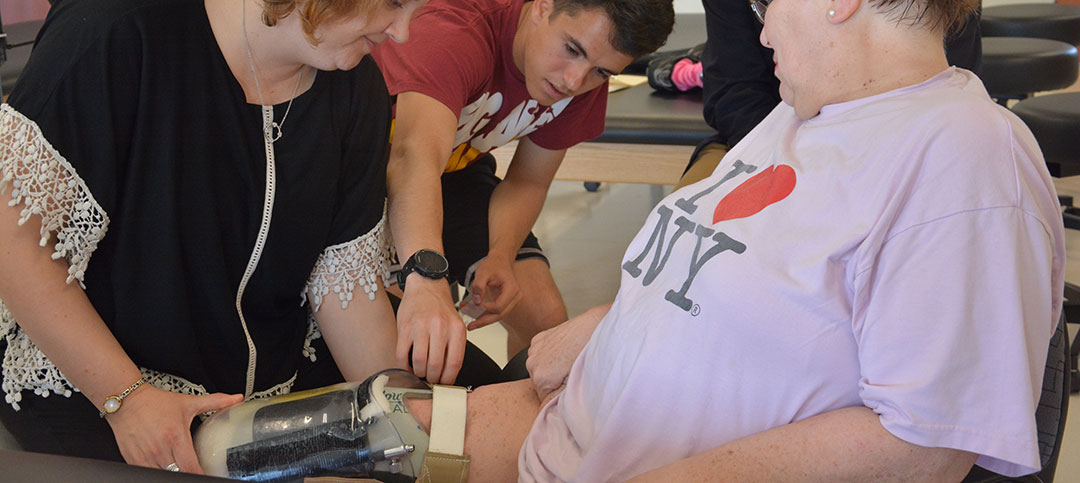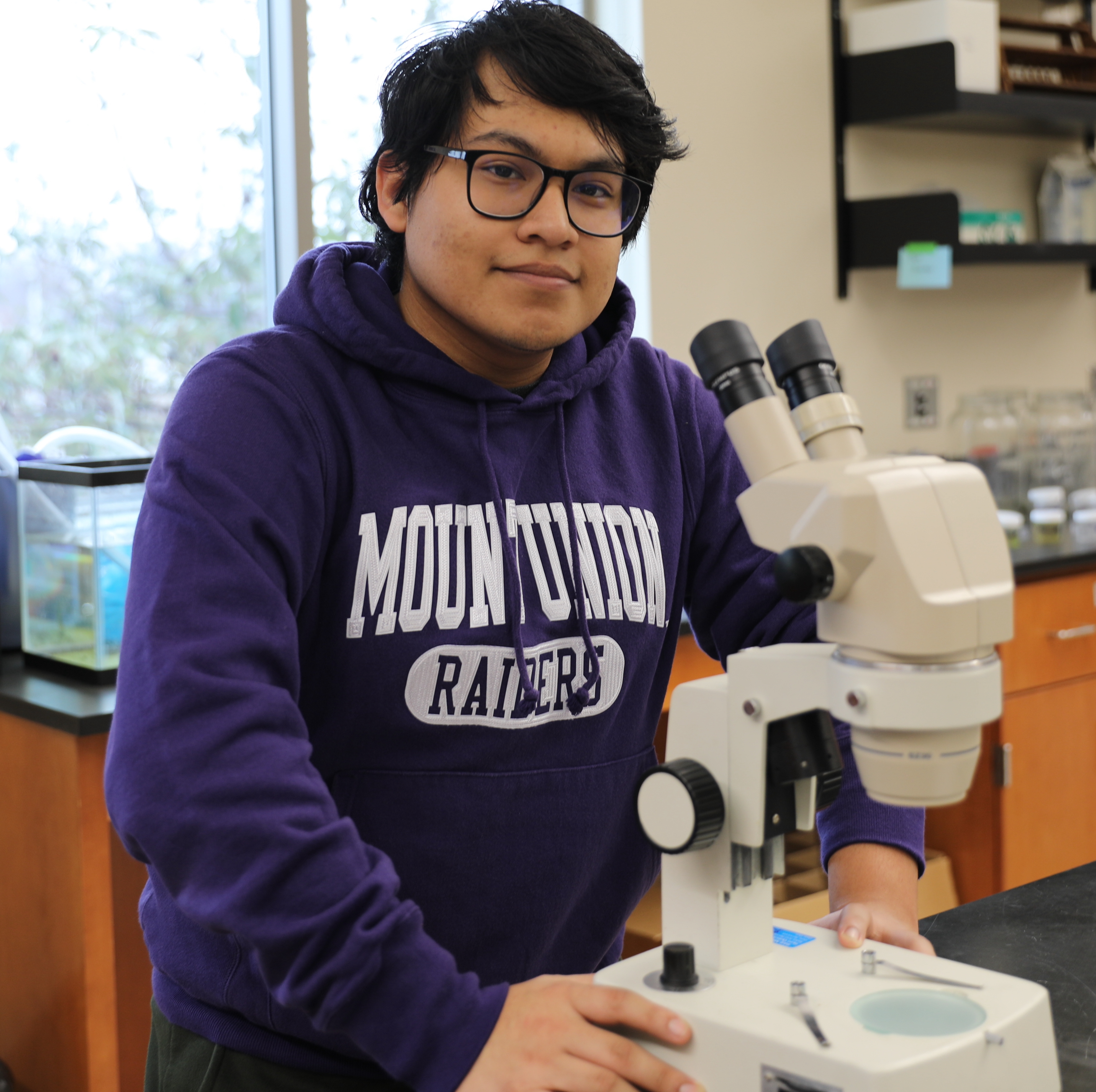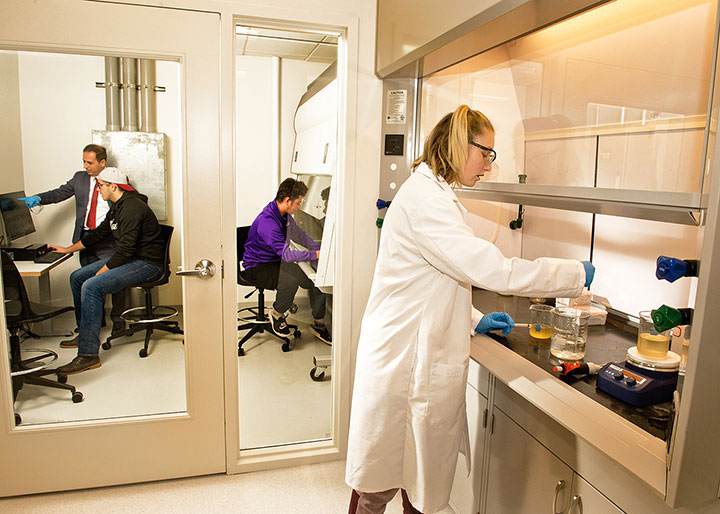Bachelor of Science in Biomedical Engineering Degree
Innovate the next generation of medical technology through the Bachelor of Science in biomedical engineering degree from the University of Mount Union. Our four-year, interdisciplinary program is accredited by the Engineering Accreditation Commission of ABET and will provide you with hands-on experiences and internship opportunities throughout your undergraduate career. (abet.org)
Our expert faculty will lead you through the Four Pillars of Exceptional Engineering Education:
- Extensive, real-world experiences
- Required international fieldwork
- Integration of engineering with essential business skills
- Development of effective leaders and communicators
About the Program
The biomedical engineering major at Mount Union provides you with the crucial skills needed for industry success, including specialized courses in biomaterials and biomechanics. You will also work with faculty and peers on important research and projects that lead to seeing your own prototypes in action.
Our School of Engineering boasts a 94% placement rate in paid engineering internships, ensuring you will gain the tools you need in real-world settings. You will be prepared for any of your career or graduate school ambitions, with our faculty advising you every step of the way.
Biomedical Engineering Quick Facts
- 72 credit hours within the Biomedical Engineering degree program
- 32 credit hours in the well-rounded Integrative Core
- Travel and make an impact through our required international experiences
Learn more about the Degree in Biomedical Engineering
Create difference-making projects for the future with a Bachelor of Science degree in biomedical engineering from Mount Union. Through internship experiences and international work that aids impoverished communities, you will be ready to generate change in this cutting-edge industry.
-
Program Mission and Objectives
MissionThe mission of the biomedical engineering program is to provide a comprehensive, rigorous, hands-on engineering education in a quality and conducive learning environment; providing students with the skills and competencies necessary for employment or career advancement as biomedical engineers. Our graduates will be equipped for life-long learning necessary for professional practice and advanced studies. We will prepare our students to be the technical, business, and global leaders of tomorrow.
Program Educational Objectives- Our graduates will be able to pursue fulfilling professional lives by integrating their Biomedical Engineering expertise with business and communication skills.
- Our graduates will be able to create value and meaningful work in the field by meeting the expectations of employers of Biomedical Engineers.
- Our graduates who are interested will be able to pursue meaningful work through advanced study or alternate career paths.
- Our graduates will be empowered to take control of their careers and to engage in responsible citizenship through dynamic roles in their local, national, and/or international communities.
- Our graduates will be able to integrate their fundamental knowledge of sciences, mathematics, liberal arts, and engineering analysis in meaningful work to solve challenges related to medicine and biology.
- Our graduates who are interested will be catalysts for change who excel in entrepreneurial or start-up situations and innovate and invent to shape the future.
Student OutcomesAt the time of graduation, biomedical engineering students will have achieved the following Student Outcomes:
- An ability to identify, formulate, and solve complex engineering problems by applying principles of engineering, science, and mathematics
- An ability to apply engineering design to produce solutions that meet specified needs with consideration of public health, safety, and welfare, as well as global, cultural, social, environmental, and economic factors
- An ability to communicate effectively with a range of audiences
- An ability to recognize ethical and professional responsibilities in engineering situations and make informed judgments, which must consider the impact of engineering solutions in global, economic, environmental, and societal contexts
- An ability to function effectively on a team whose members together provide leadership, create a collaborative and inclusive environment, establish goals, plan tasks, and meet objectives
- An ability to develop and conduct appropriate experimentation, analyze and interpret data, and use engineering judgment to draw conclusions
- An ability to acquire and apply new knowledge as needed, using appropriate learning strategies
-
Curriculum
Taught by our outstanding engineering faculty, with expertise in the many fields that make up biomedical engineering, you will start your college career with general education courses in chemistry, physics, calculus, and an overall view of the engineering profession as well as analysis and design. Throughout your years at Mount Union, you will engage in our dynamic curriculum that is strongly focused on real-world application. You will gain hands-on experience through a required international experience in the field as well as through the engineering capstone design course.
-
Careers
According to Bureau of Labor statistics, there is estimated to be 22,800 jobs by 2026. The average median salary in 2017 was $88,040. Biomedical engineering is a field of engineering likely to see increased demand because of increasing technological advances and applications that are being applied to medical equipment and devices.
The aging generation of active baby boomers will also increase the demand for biomedical procedures and devices. As society becomes for aware of the advances that are being made in the biomedical industry, increasing numbers will seek out these solutions from their healthcare providers.







